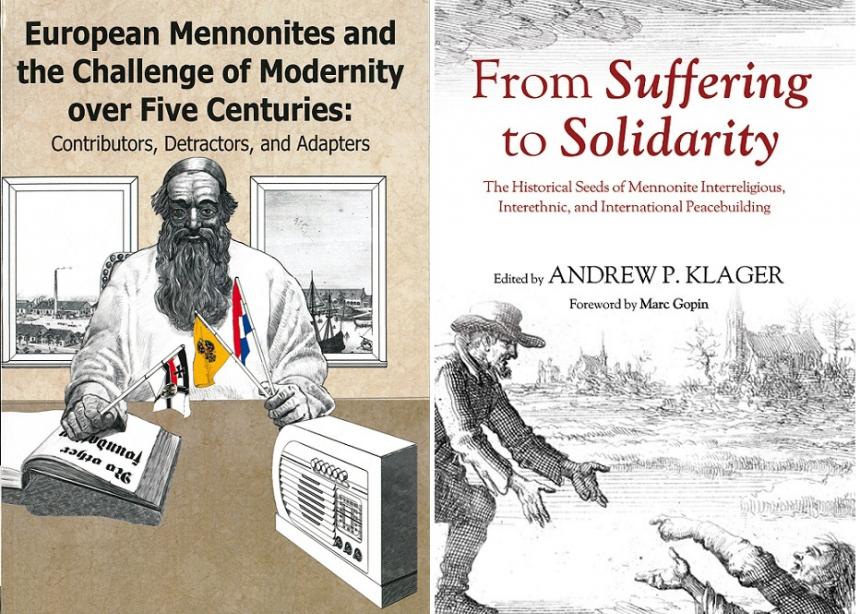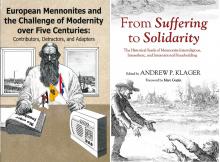The past two years have seen the publication of two interesting new collections of academic writing on Mennonite themes, one theological and the other historical. While other reviewers such as Jamie Pitts and Ben Goossen have reviewed these books in detail elsewhere, I would like to reflect on them in much broader terms and ask what they might mean for Mennonites today.
European Mennonites and the Challenge of Modernity Over Five Centuries is an essay collection that explores how Mennonites have had a broad impact on European culture and politics in the time since the 16th century into the modern era. Examining how Mennonites accepted, rejected and adapted to modernity, the book includes essays from a 2010 conference at Bethel College in North Newton, Kan., and features contributors from across Europe and North America. The essays cover topics such as Mennonites and church discipline in the Dutch Republic by Troy Osborne, Mennonites and modernity in Central Asia by Dilaram M. Inoyatova, and Mennonites and religious freedom in Prussia and Russia by Mark Jantzen and Johannes Dyck.
At the same time, From Suffering to Solidarity is an essay collection on how Mennonite peace theology has developed and changed since the 16 century.
Tracing the Mennonite desire to alleviate the suffering of others, the book includes chapters on global Anabaptism by John D. Roth, human rights by Lowell Ewert, Mennonite women by Marlene Epp, and Palestine-Israel by Alain Epp Weaver, to name just a few.
These two books are interesting because they both confront contemporary conversations that are occurring outside the walls of the church by engaging with scholars from religious and non-religious settings, and they both share a common concern for the future of Mennonite conversations about our shared history and theology.
One question that may be on our minds is: What does the Mennonite peace witness look like today in a world in which armed conflict and political violence have changed so drastically since the Mennonite peace movements of the 1970s? Another question on our minds might be: What does Mennonite history mean to us today after we have become less idealistic about the successes of the past and more aware of our many institutional failures?
These books show me that we are interested in finding answers to these questions that speak to our present realities. From Suffering to Solidarity suggests that Mennonite history can still inspire peace work, and European Mennonites shows us that Mennonite history may have had a deeper effect on the world than we thought. One book is historical and continues the legacy of Mennonite reflection on the significance of the past for our present identity, and the other is about how our peace theology is moving in new and different directions while addressing the many incidents of violence in the world that call out for help from people with caring hearts and minds.
Max Kennel is a doctoral student in religious studies at McMaster University, Hamilton, Ont.




Add new comment
Canadian Mennonite invites comments and encourages constructive discussion about our content. Actual full names (first and last) are required. Comments are moderated and may be edited. They will not appear online until approved and will be posted during business hours. Some comments may be reproduced in print.